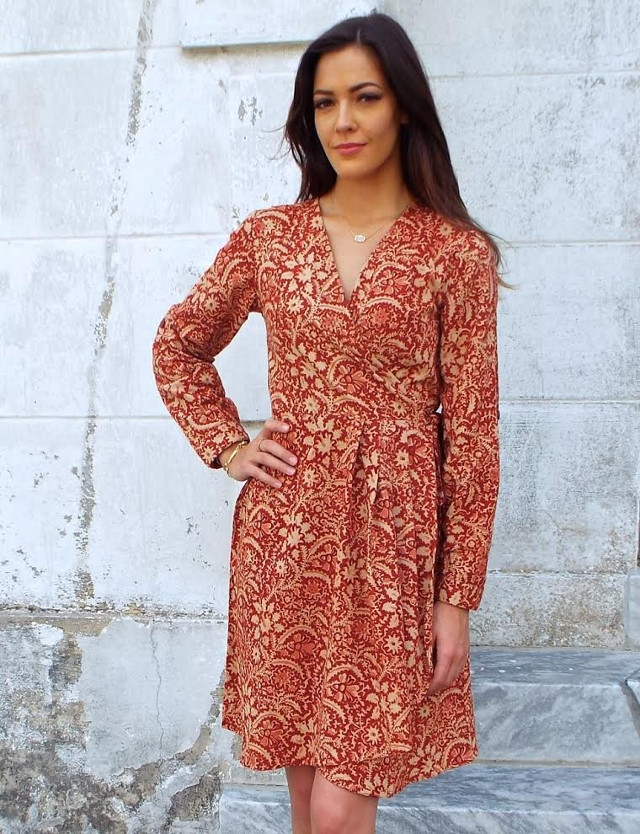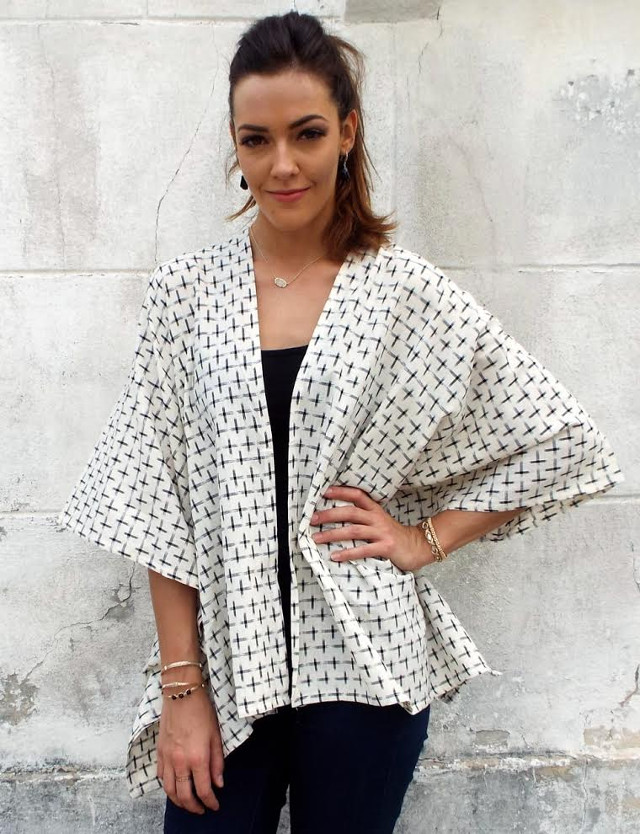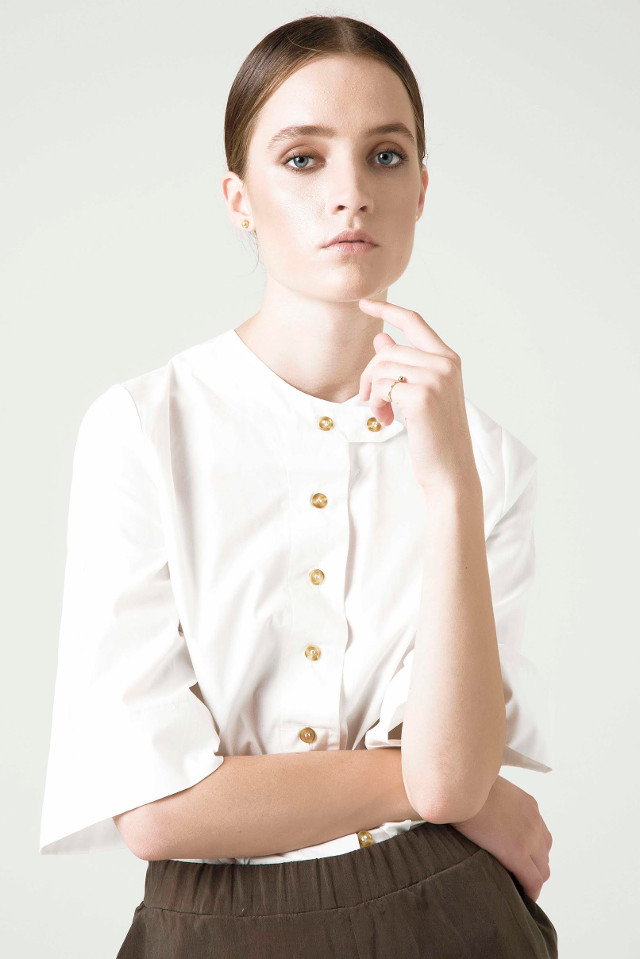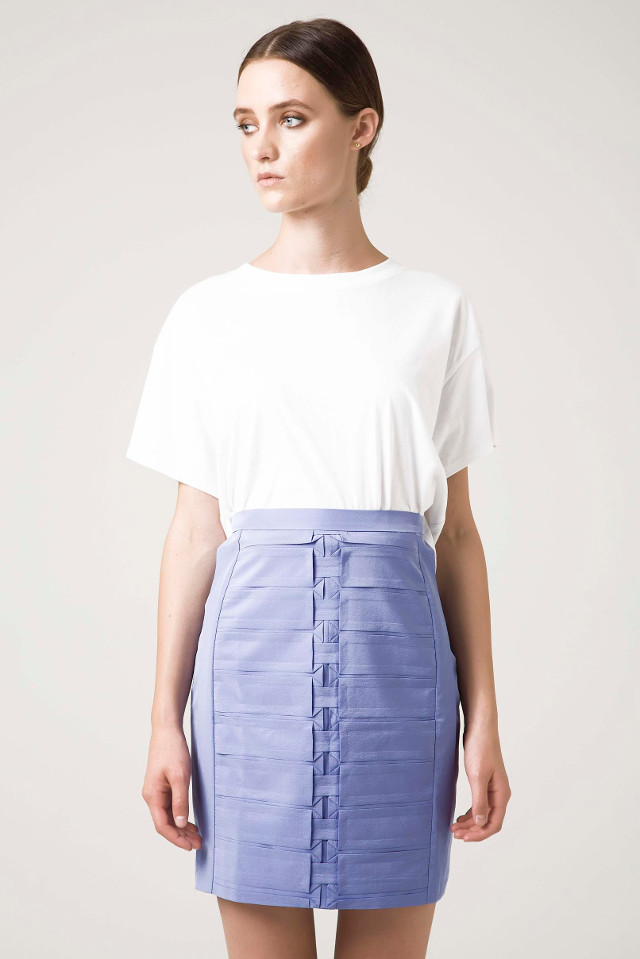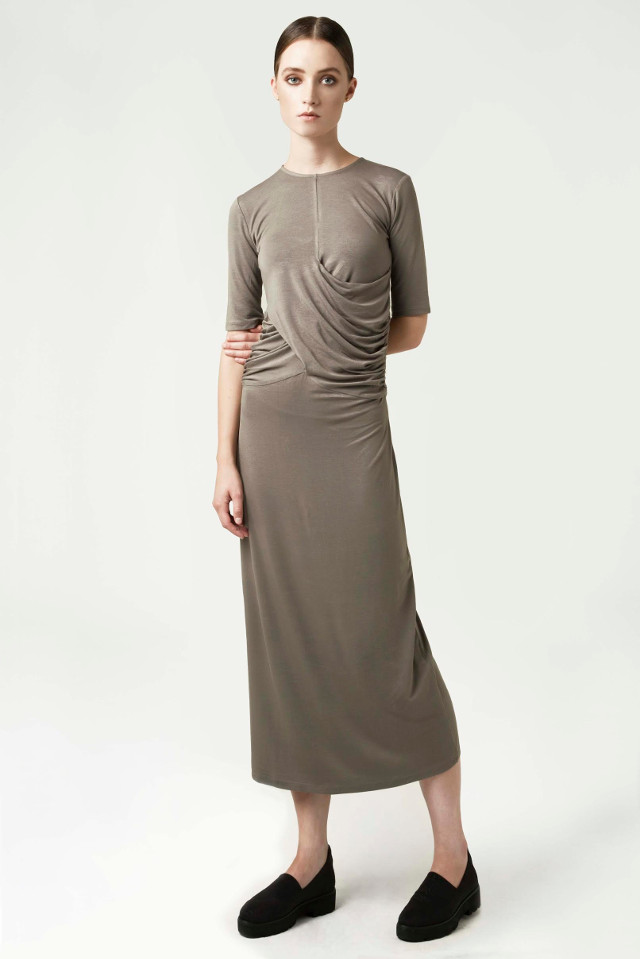
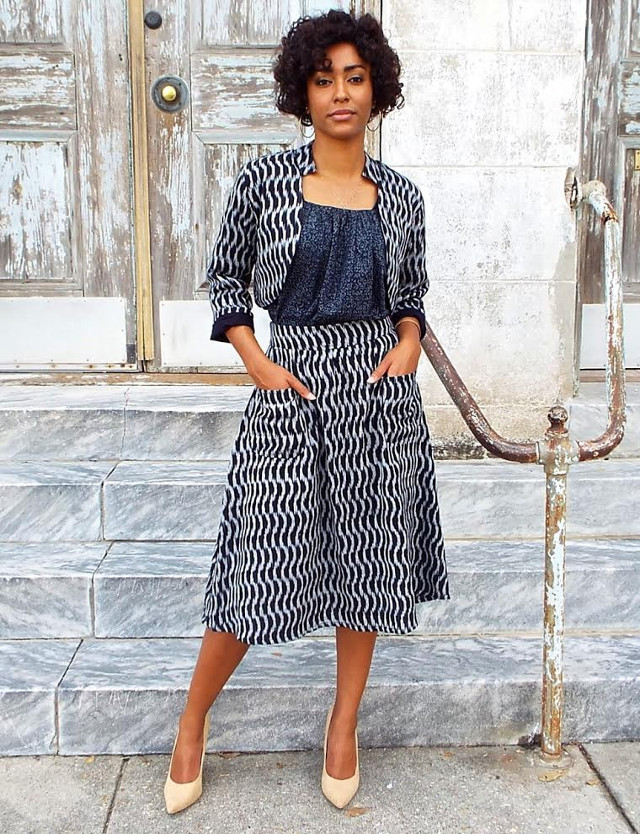
(Passion Lilie’s Black Fog Midi Skirt and Bolero, coming soon.)
Passion Lilie, one of my favorite ethical brands, has released their new line for fall and winter, and it’s filled with gorgeous patterns and silhouettes. Designed in New Orleans and made in India, these pieces are perfect for the cooler months in the southern states, since everything is 100% cotton. Katie Schmidt, Passion Lilie’s founder, designs the most feminine and elegant skirts and dresses that can be worn year-round. I really love the skirt and bolero styles featured this season.
Passion Lilie’s pieces are versatile, like the Country Red Wrap Dress in a beautiful paisley pattern with long sleeves that can be rolled up in warmer weather. It’s a classic cut with a modern print that adds a touch of bohemian style.
Ponchos and jackets also feature heavily in Passion Lilie’s fall collection, and the Black Dash Poncho adds minimalist style to any basic outfit. It can also be tied with a matching belt to create a kimono-style look. Many of the fabrics in Passion Lilie’s line are hand block printed or hand woven and ikat-dyed, which are both fascinating processes. In the spring and summer, I usually reach for these hand-printed pieces the most because they are so beautiful and easy to wear.
The Fall/Winter 2016 Lookbook is available now, and be sure to peruse Passion Lilie’s site, too.
(Photos courtesy of Passion Lilie.)

Sustainable brands are becoming quite common these days, which is a wonderful thing. Rakha, a London-based line using responsibly sourced and recycled materials, also succeeds in producing gorgeously designed pieces meant to last for years to come. The lines and shapes of Rakha’s collection are simple and classic, and each item features a gorgeous detail that makes it an investment piece perfect for all-day wear.
My favorite pieces in Rakha’s collection include the Lilac Pleated Skirt and Blazer, as well as the Anemone Pleated Blazer, which is made from recycled fabric and designed to fit a variety of sizes from small to large. The fluid shape and woven texture add a true sense of quiet elegance to the line. Each design stands on its own and can be worn as a statement piece with the other clothing already in your closet.
In fact, the purpose of Rakha’s brand is to focus on comfort and simplicity in an effort to encourage sustainability. The company works with factories that have their own waste-water treatment plants, ensuring that the water used can be recycled and used again, and many of the fabrics in Rakha’s designs are biodegradable or made from recycled bottles. Rakha also recycles garments to make into new designs, so that the cycle of fashion isn’t interrupted, but continues.
Rakha’s line is truly unique in its understated elegance and the pieces will last for years to come.

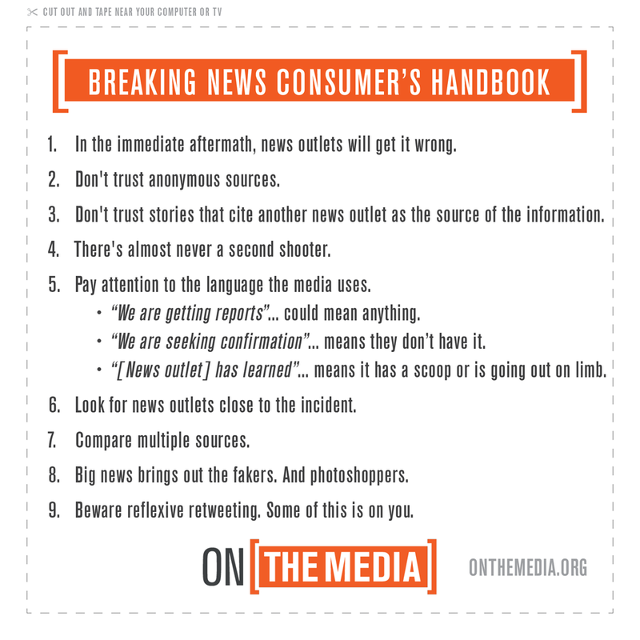
(via On the Media.)
When I shop for clothing, I research and find the best possible ethical options, and it occurred to me recently that I consume news in a similar way. It’s taken a lot of time and effort to become a well-versed ethical consumer, and this habit carries over into my daily news reading. Or, more likely, my news obsession eventually led to a better understanding of how our clothing is made, which started my ethical journey. Either way, I’m convinced that, since I strongly identify as an ethical consumer, I have a responsibility to be an ethical news consumer, too. That means finding and reading reputable news sources with a variety of viewpoints represented, double checking things that might not seem factual, and questioning everything. Just because you read something online or see it on TV doesn’t mean it’s true. The above graphic from On the Media is a great reference, and its points can be applied to many aspects of today’s news coverage.
Over the weekend, I listened to The Texas Miracle Podcast from The Texas Observer. This episode contained three parts: a Texas pastor’s reasoning that Jesus would use the phrase, “Black Lives Matter;” a remembrance of Sandra Bland one year after her death; and a roundtable discussion of several topics, including the media’s misrepresentation of the Black Lives Matter movement. The third segment was especially interesting and explored the lack of objective coverage of the deaths of Black people and the way in which these murder victims are portrayed in the news. Also within the roundtable talk, Christen Smith, a professor from The University of Texas, discussed her theory that the trauma of police violence is slowly killing Black women in less than obvious ways. She recently wrote an article on the topic, and it’s available here.
And since his death several weeks ago, I’ve had this story on Bill Cunningham bookmarked. Cunningham was, Robin Givhan explains, the very definition of ethical journalism. In a very similar manner, we as ethical consumers must educate ourselves and seek out news coverage in a fair and ethical way, to ensure that we’re reading and hearing all sides of the story before we form our own opinions.

